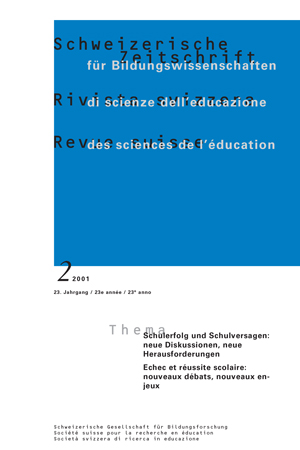Foreign Students’ Situation on the Secondary Level (Gymnasium; Apprenticeships) in Swiss Schools: Integrated or Disadvantaged?
DOI:
https://doi.org/10.24452/sjer.23.2.4606Abstract
In accordance with the theory of human capital, schools must develop the educational potentials of their students. However, the comparison of several groups of foreign students with their autochthonous Swiss counterparts shows that participation of the former on the secondary II level is low. It proves to be especially difficult for foreign students to accede to the higher level education in middle schools (e.g. gymnasiums) but also in higher level apprenticeships. However, in the case of apprenticeships a compensation effect is to be noticed in the fact that a proportion of foreign students similar to that of Swiss students is to be found in higher level apprenticeships. The author blames Swiss educational systems for preferentialism, which consists in giving advantages to monolingual students, even in cases where school performances of their bilingual foreign colleagues are higher. This preferentialism helps to protect the utilitarian interests of the autochthonous group, but on a long term range it will harm the higher social and economic interests of the state.
Downloads
Downloads
Published
Issue
Section
License
Copyright (c) 2001 Romano Müller

This work is licensed under a Creative Commons Attribution 4.0 International License.



